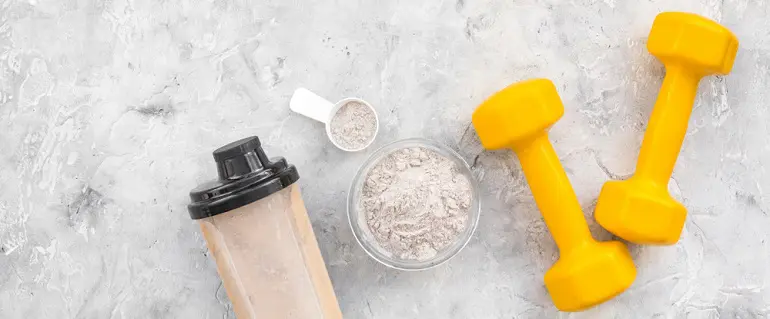
Ditch the Sugar, Sip the Greens: The Art of Making a Healthier Protein Shake
- Nov 15, 2025
Anyone can throw a scoop of protein powder into a glass and call it a shake, but at EatKaleOrDieTrying, we refuse to settle for such a pathetic definition of nutrition. We know that not all proteins shake their booty quite the same; some are pure nutritional superstars, while others are downright yearning for a detox.
Overly sweetened protein shakes are the insta-baddies of the health world–they look stunning in the photos, but you wouldn't want to live with them. Yes, they're convenient and help ensure you reach the protein portions of your diet, crucial for overall well-being. But here's the kicker. If your shake contains more sugar than protein (even if it's disguised as a 'healthy' sweetener) then it's not doing its fitness job. It's an undercover flab-creator dressed as a muscle-maker. The World Health Alliance recommends sugars be less than 10% of our total daily calories, sassy protein shakes with more than 5 grams of sugar can bounce out of the gym door, thank you very much.
Avoid sugar syrups. Complimentary sugar alcohol isn’t your hedonistic ride to Sweet Town either when mixed into a protein shake. Things like erythritol, when combined with another sugar alcohol (like sorbitol in a sugar-free syrup), won't give you any sweet party memories, just gas, bloating and an uncooperative digestive system.
Exhibit A: Juices with acidic sins. They sound so innocent, so fresh. But mix them with certain proteins like whey, and you get a poorly-absorbed cocktail of wasted opportunity. Worse yet, they can reduce the antioxidant properties in the juices. Apply caution around pro-acidic rebels-they're not for everyone and can cause unrest among sensitive stomaches, diabetics, those with iron absorption issues, or citrus-allergics.
Tip two in our shake saga: Adding extra fiber to your protein shake isn't exactly a bright bulb moment. It might seem like the perfect fit -clearing your digestive tract while building that body. But again, natural isn't always better. Extra fiber will make you feel bloated and gassy as it joyfully absorbs water in your shake, turning it into a gritty nutritional gloop that requires a shovel rather than a straw.
Did you think about pouring a steaming hot cup of protein to replace your morning coffee? Try again. Evidence shows that heat destroys the nutritional benefits of whey protein, making it harder for your body to digest. Don’t fight with your body first thing in the morning; instead mix your protein blend into a room-temperature or iced shake.
Choosing between milk and water for your protein shake base is like choosing between a marathon and a sprint–both have their pros and cons. If you're on a low-carb or low-calorie diet, water might be your go-to. But if you're aiming for muscle growth, you could go for milk or even chocolate milk. Milk has a surplus of proteins–whey and casein–that make your muscles sing, "I will survive!” Combine this with milk's ability to replenish glycogen stores used during exercise, it seems milk trumps water. But this ain’t written in stone. If you're lactose intolerant or allergic to dairy, opt for water.






